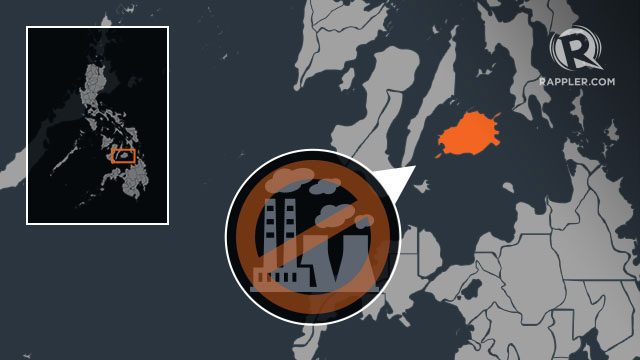SUMMARY
This is AI generated summarization, which may have errors. For context, always refer to the full article.

BOHOL, Philippines – The local government of Bohol passed an ordinance against the establishment of coal power plants in the province, as a response to the people’s demand for a coal-free Bohol.
Provincial Ordinance 2018-005, passed on April 6 by the Sangguniang Panlalawigan (SP), prohibits the building of any coal power plant in Bohol.
“This is an important victory by the people against coal,” said Greenpeace climate and environmental campaigner Khevin Yu.
The ordinance came after mounting public pressure on the SP for including coal-based companies among 52 power applicants vying for a slot in the bidding process.
The no-coal policy sets 4 selection stages, with cost, reliability, and environment as key criteria. This means distribution utilities in Bohol have to factor in the environment in their decisions.
Experts explained the disadvantages of coal. (READ: Masbate bans coal-fired energy projects)
For one, Yu and members of the Bohol Climate Walkers (BCW) explained that coal is no longer the cheapest energy option.
On top of this, there was a recent study showing that existing and proposed coal projects in the Philippines will have stranded assets.
Long-term burden
Yu asserted that if Bohol decided to use coal, the island will be locked in a 20-year energy contract, which will create a long-term burden for energy consumers as coal will continue to be more expensive in the future.
There are also costs not traditionally taken into account, such as subsidies for coal producers and the damaging effects of coal emissions and coal mining to the environment and the people. Based on a 2015 Harvard study, the existing and proposed coal power plants in the country can cause up to 2,410 premature deaths annually.
This is why pursuing other renewable energy alternatives, such as solar energy, makes sense. “It is not exposed to price increase, financial risk, and environmental risk and, in fact, it is projected to reduce cost even more,” Yu added.
While the ordinance bans the coal power proponents in Bohol, however, it does not provide penalties for violators. “I wish for the ordinance to have more teeth to it… It wouldn’t hurt if there is a penal section in the ordinance,” said another member of BCW who is also a lawyer.
Meanwhile, advocates also criticized the Electric Power Industry Reform Act (EPIRA) of 2001.
While distribution utilities cite EPIRA as a reason to resort to coal energy, the energy deregulation law has not given Filipinos affordable electricity nor has it ensured sustainable power supply in the country.
Since it was signed in 2001, electricity prices have in fact skyrocketed.
Yu and BCW members believe this law needs to be repealed. – Rappler.com
Add a comment
How does this make you feel?
There are no comments yet. Add your comment to start the conversation.